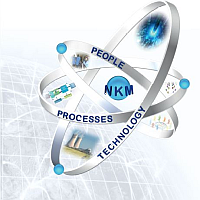Speaker
Mr
Ugochukwu Ugbor
(IAEA)
Description
The development of nuclear education, science and technology programmes is affected by the national context including national needs and capacities. The role and expectations for nuclear education and training might be different in technically matured countries, from countries where the technology is emerging.
In this regard, particularly in developing countries, there is a need to balance nuclear education and training between immediate critical issues of radiation safety or human health and longer-term priorities in agriculture or industry. These priorities may or may not include the nuclear energy option.
This paper shows how the Education Capability Assessment and Planning (ECAP) Assist Mission can contribute towards establishing sustainable nuclear education, including highlighting the various activities of each phase of the ECAP Process.
| Country or International Organization | IAEA |
|---|
Author
Mr
Ugochukwu Ugbor
(IAEA)
Co-authors
Mr
Beeley Philip
(Khalifa University, Abu Dhabi, UAE)
Mr
Javier Dies
(Spanish Nuclear Safety Council, Madrid, Spain)
Mr
Kenneth Peddicord
(Nuclear Power Institute, Texas A&M University, USA)
Mr
Vladimir Artisyuk
(Rosatom Central Institute for Continuing Education and Training, Obninsk, Russia)

